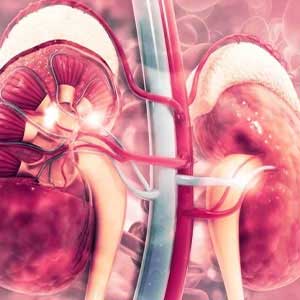Chronic Kidney Disease (CKD) in Vijayawada
Chronic Kidney Disease (CKD) is a long-term condition characterized by a gradual decline in kidney function over time, often spanning months or years. The kidneys play a crucial role in filtering waste products from the blood, regulating fluid balance, and maintaining blood pressure. CKD needing Best Chronic Kidney Disease treatment in Vijayawada is typically caused by diabetes, hypertension, or glomerulonephritis, leading to damage that impairs their ability to function effectively. Symptoms may be subtle in early stages and can include fatigue, swelling, and changes in urination. As the disease progresses, complications such as anemia, bone disease, and cardiovascular issues may arise. Diagnosis is often made through blood tests measuring kidney function (like creatinine levels) and urine tests. While CKD is generally progressive, early detection and management can slow its progression, involving lifestyle changes and medications. In advanced stages, dialysis or kidney transplantation may be necessary to maintain health and well-being. Regular check-ups at Best kidney hospital in Vijayawada are essential for effective management.
What could be the cause of chronic kidney disease ?

Chronic kidney disease (CKD) can arise from a variety of causes, often related to underlying health conditions. The most prevalent cause is diabetes, specifically Type 1 and Type 2 diabetes, which can lead to kidney damage over time through high blood sugar levels. Hypertension, or high blood pressure, is another major contributor, as it can affect the blood vessels in the kidneys, impairing their ability to function properly. Other causes include glomerulonephritis, an inflammation of the kidneys' filtering units, and polycystic kidney disease, a genetic disorder characterized by fluid-filled cysts in the kidneys. Additionally, prolonged use of certain medications, such as nonsteroidal anti-inflammatory drugs (NSAIDs) or some antibiotics, can lead to kidney damage. Kidney specialist in Vijayawada also stare that lifestyle factors, including smoking, obesity, and poor diet, can increase the risk of developing CKD, making regular monitoring and management of overall health essential in prevention and treatment which may also include Hemodialysis in Vijayawada .
Identifying the signs of Chronic Kidney Disease (CKD)
Most of the times, the symptoms of chronic kidney disease might go un noticed or they may be silent. Regular check ups are the best way to find them in the starting phase. Later on, some of the symptoms might be like:
- Fatigue: Persistent tiredness and weakness due to anemia.
- Swelling: Edema in the legs, ankles, or feet from fluid retention.
- Changes in Urination: Increased frequency, particularly at night, or reduced urine output.
- Foamy Urine: Presence of protein in urine, indicating kidney damage.
- Nausea and Vomiting: Diminished appetite and gastrointestinal symptoms.
- Itching: Persistent skin rashes or itching due to waste buildup.
- High Blood Pressure: Elevated levels that are difficult to control.
- Shortness of Breath: Fluid accumulation in the lungs affecting breathing.
- Metallic Taste: Altered taste sensation leading to food aversions.
- Back Pain: Discomfort or pain in the lower back related to kidney issues.
What increases the risk of chronic kidney disease?
Chronic kidney disease (CKD) primarily affects individuals with certain risk factors. Those with diabetes or hypertension are at significant risk, as these conditions can damage blood vessels and impair kidney function over time. Additionally, individuals with a family history of kidney disease, obesity, or cardiovascular diseases are more susceptible. Age is another factor, with risk increasing for individuals over 60. Other risk groups include those with a history of kidney stones, urinary tract infections, or autoimmune disorders.
Tips to prevent chronic kidney disease (CKD)
- Stay Hydrated: Drink plenty of water to help kidneys function optimally.
- Eat a Balanced Diet: Incorporate fruits, vegetables, whole grains, and lean proteins while limiting salt, sugar, and unhealthy fats.
- Control Blood Pressure: Regularly check and manage blood pressure through diet, exercise, and medication if necessary.
- Manage Blood Sugar: For those with diabetes, keeping blood sugar levels within target ranges is crucial.
- Maintain Healthy Weight: Achieving and maintaining a healthy weight can reduce the risk of CKD.
- Regular exercise
- Limit Alcohol: Consume alcohol in moderation to protect kidney health.
- Avoid Smoking: Quit smoking to improve overall health and reduce kidney strain.
If you are at risk or if kidney diseases have been a part of your family’s medical history, it is imperative to have a regular check up done by specialist to understand if your kidney is functioning well. Be it yearly or twice a year, getting the standard tests done is an excellent way to keep track of your kidneys functioning. For more information on chronic kidney diseases, feel free to walk in to Sunrise Kidney Centre and book your consultation with Dr. M.V. Sai Krishna .
Frequently Asked Questions
What is chronic kidney failure (CKD)?
Chronic kidney failure (CKD) is a gradual loss of kidney function over time, which can lead to a build-up of waste products in the blood and potentially life-threatening complications.
Can CKD be treated?
While there is no cure for CKD, treatment options can help slow the progression of the disease and manage symptoms. These may include medications, lifestyle changes such as diet and exercise, and dialysis or a kidney transplant.
What is dialysis?
Dialysis is a treatment that filters waste products from the blood when the kidneys are no longer able to do so. There are two main types: hemodialysis and peritoneal dialysis.
What is a kidney transplant?
A kidney transplant involves replacing a patient's diseased kidneys with a healthy kidney from a donor. This can be done from a deceased donor or a living donor.
How does diet affect CKD?
A healthy diet that is low in salt and sugar and high in protein and fiber can help slow the progression of CKD. A dietitian or renal registered dietitian can help develop a personalized meal plan.
Can I prevent CKD?
While there is no surefire way to prevent CKD, managing conditions such as diabetes and high blood pressure through lifestyle changes and medication can help reduce the risk.
How long can I live with CKD?
The prognosis for people with CKD varies depending on the stage of the disease, underlying causes, and treatment options. With proper management, many people with CKD can live for many years with a good quality of life.

